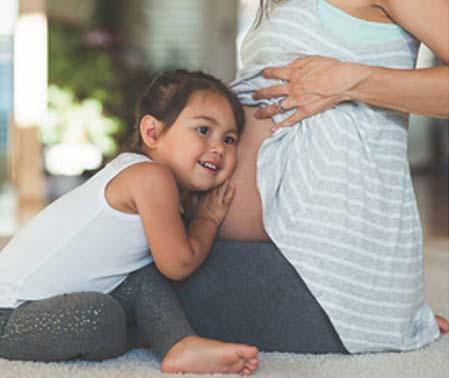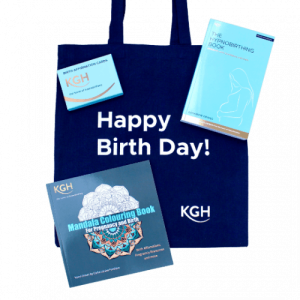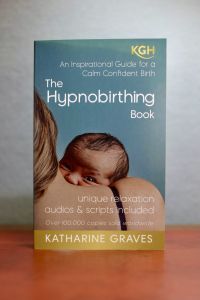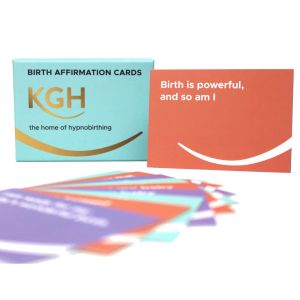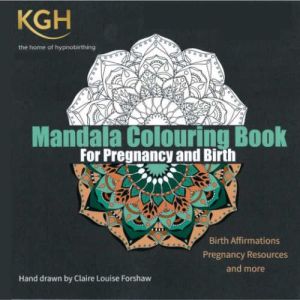This week (19th-24th July) is Birth Trauma Awareness Week. Birth trauma is classified as distress experienced during or after childbirth – Postnatal PTSD. The trauma can be physical but can also be emotional and psychological. It is on the increase and what should be a joyful time for mother and baby has in many cases become a time of stress and worry which can last for a long time.
Do I have Postnatal PTSD?
It is estimated that 1 in 3 people experience some kind of birth trauma with 30% experiencing some symptoms of PTSD, both of which are alarmingly high numbers.
Partners who have witnessed a traumatic birth can also experience PTSD too. According to The Birth Trauma Association, there are four symptoms of PTSD:
- re-experiencing the trauma (e.g. flashbacks and nightmares);
- avoidance (the woman avoids any reminder of the trauma);
- negative cognitions and mood (such as feelings of guilt);
- arousal (such as hypervigilance). In effect, the brain is still in flight-or-fight mode, constantly alert to the threat of danger.
Those who have what appears to be a normal birth can suffer birth trauma if they feel out of control, not listened to, and suffer loss of dignity, but mostly if they feel dismissed, unsupported or are put under pressure to make decisions particularly in the last few weeks of their pregnancy that they may subsequently regret.
‘If only…’
These are the two words on the lips of couples who come to me after a traumatic first birth. ‘If only I had known …’ ‘If only someone had told me …’ This is incredibly sad and also unnecessary. The purpose of the KGH course is that we pre-empt the ‘if only’s’ by giving you all the knowledge you need to make informed choices about the birth of your baby so you have the best possible birth experience. We give you more information than any other course so you can make the best possible decisions that are right for you.
The information we give is logical and evidence-based, but I understand it can be very difficult to stick to the choices that you have made in advance when you may be subjected to pressure, coercion and scaremongering to change your mind in the last few weeks of your pregnancy.
Preparation is key
Birth doesn’t always go to plan but, if you and your partner are well informed you will be in a position to make the choices that are more likely to lead to the birth you want. Even if birth evolves in an unexpected way, it can still be an empowering and positive experience if you feel in control. This is how KGH can help:
- Prepare for childbirth with a KGH course: this is a full antenatal course so not only will you learn techniques to help you remain calm throughout pregnancy and birth, but we talk you through how the body works, why certain things happen, and explain all the options available to you – so nothing is a surprise. We give you the tools to achieve the birth you want.
- Have a flexible birth preference plan: most people know what they do not want in labour, but what would you like? By writing down a plan and sharing this with your caregivers, you can work together to achieve a positive birth experience. However, it is important to know that things can happen and your plan may go in a different direction, so having some flexibility can help you to deal with any changes that may occur. We have a birth preference template on our website here.
- Work as a team: having a birth partner on a KGH course with you will help then not only understand the birth process, but give them a role to play throughout. They are your biggest supporter – use them! Your caregivers are also there to offer support when you need them.
- Talk about your any mental health issues you may have: if you are prone to anxiety of depression, tell your midwife this. Many NHS Trusts now have dedicated Mental Health Support Midwives they can put you in touch with.
If you have experienced birth trauma
If you have had a baby and feel you are suffering from birth trauma, talk. To your friends, family, birth partner, midwife, health visitor. Don’t suffer in silence. Asking for help will get you the right support to processing what happened to you and your baby in childbirth. Know that you are not alone.
There are many amazing organisations out there who can help guide you, including:
Anyone who has had a traumatic first birth and comes to the KGH course for their second baby has found that it releases all the stress, tension and fear around birth that has remained with you. It really does.
Katharine.
